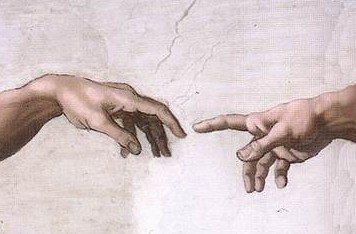
Seventeenth
Sunday in Ordinary Time
2 Kgs 4: 42-44/ Ps 145/ Eph 4: 1-6/ Jn 6: 1-15
The
Lady Senator Miriam Santiago once shared this conversation between God and the
Presidents of China, USA, and the Philippines.
China: God, kalian mawawala sa bansa ko ang
corruption at kahirapan?
God: 300 years, anak.
Umiyak ang president ng China. ‘Naku patay na
ako niyan.’
USA: God, kalian mawawala sa bansa ko ang
corruption at kahirapan?
God: 500 years, anak.
Umiyak din ang president ng USA. ‘Naku patay
na ako niyan.’
Philippines: God, kalian mawawala sa bansa ko
ang corruption at kahirapan?
Umiyak si God.
God: Patay tayo diyan!
Corruption
and poverty are just some of the many problems we have to face every day in
life. Since birth until now, problems have grown together with us. Even death
cannot stop our problems because once we are dead, we leave to our loved ones
our unsolved problems like mga utang at
mga kaaway. And in every problem that we face, we also have different
attitudes and ways to solve them.
In our
Gospel today, we see a problem, a need in the ongoing ministry of Jesus and his
disciples. Jesus saw a large crowd coming to him. And so, he asked Philip, “Where
can we buy enough food for them to eat?” In this story, we find three different
ways/attitudes of solving the need for food. First, we meet Philip who
immediately said, “Two hundred days’ wages worth of food would not be enough
for each of them to have a little.” According to his calculation, the problem
was something beyond his reach. Second, we meet Andrew who found a little boy
who had five barley loaves and two fish. However, seeing the vast crowd, he
ended a pessimist. “But what good are these for so many?” Finally, we see the
two movements of Jesus – he asked the people to recline and took the bread and
fish. Commentators would say that these two movements are Jesus’ exercise of
his human wisdom (if the people will remain standing, then during the
distribution of food there will be a stampede) and his supernatural wisdom
(took, thanked, and distributed a limited number of food yet fed a large
crowd).
What
happened in the Gospel is also true in our life today. When we are confronted
with a big problem, need, and concern, sometimes, our easy way out is to be
like Philip, “a hopeless romantic.” We
lose hope. Thus, we only complain and complain without doing anything at all. Once
we lose hope in this present life, then it is better for us to look for a space
in the cemetery, where only hope for the future resurrection remains.
Sometimes,
we are also like Andrew. We look for a solution yet the gravity of the problem
pulls us away. Every New Year, we always make a list of resolutions. However,
as the days, weeks, and months move forward, we go back to our old lifestyle.
We are carried away by our problems.
Therefore,
in this 17th Sunday in Ordinary Time, we are challenged to be like
Jesus. Let us use our human wisdom! Let us be practical in dealing with our
problems. For example, if there is a feud brewing in the family, the practical
solution is to dialogue in order to settle things. If we are experiencing
health problems, then the practical solution is to live a healthy lifestyle. However,
we have to admit that human wisdom is limited. Humanity cannot totally solve
its problems. Thus, we seek divine wisdom. We allow God to move in our lives
just as he took, thanked, and distributed the bread and fish.
Why
insist on Jesus? Because our responsorial psalm today has taught us that “the
hand of the Lord feeds us; he answers all our needs.” Because Paul in our
second reading today reminded us that we have “one God and Father of all, who
is over all and through all and in all.” Such is the experience of Elisha, the
prophet, in our first reading today. He experienced God’s hand feeding the people.
My dear
friends, just as “tomorrow never dies,” our problems, too, never die. And so,
let us use our human wisdom in dealing with them. However, we must never forget
to ask for “the hand of God who feeds us all.”
And so,
may this song inspire us as we continue to face our never ending problems yet
holding on to the hand of God.
“There is no problem too big
God cannot solve it
There is no mountain too tall
God cannot move it
There is no storm too dark
God cannot calm it
There is no sorrow too deep
He cannot solve it
Oh, if He carries the weight of the world
upon
His shoulders
I know my brother that He will carry you
Oh, if He carries the weight of the world
upon
His shoulders
I know my sister that He will carry you
He said, “Come unto me all who are weary
And I will give you rest.”
Amen!
Photo taken from en.wikipedia.org356 × 234
No comments:
Post a Comment